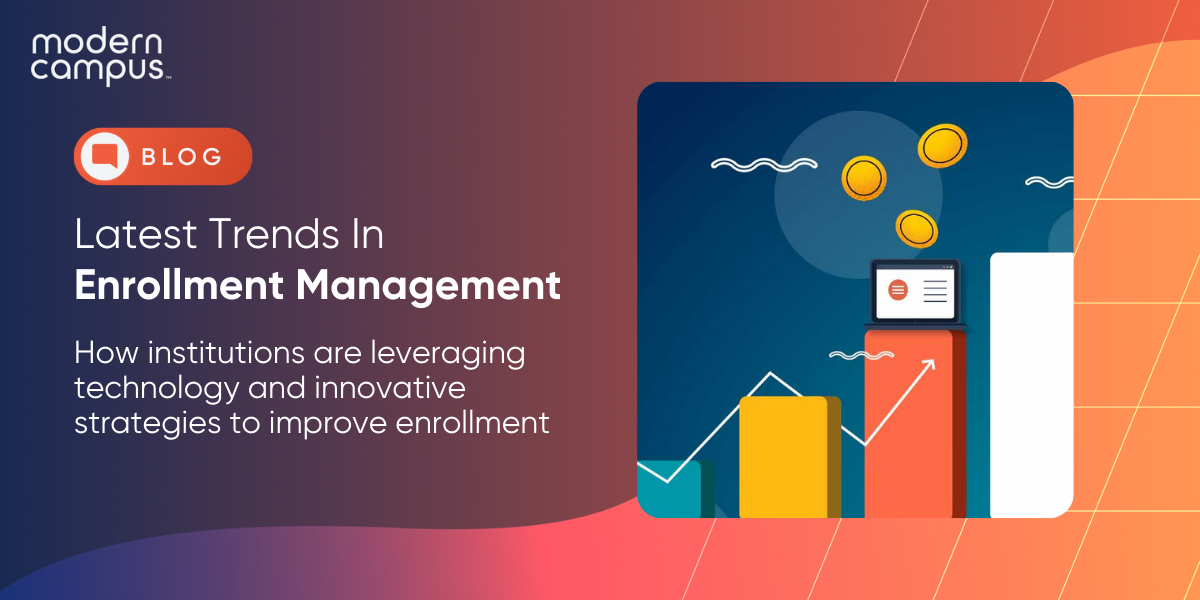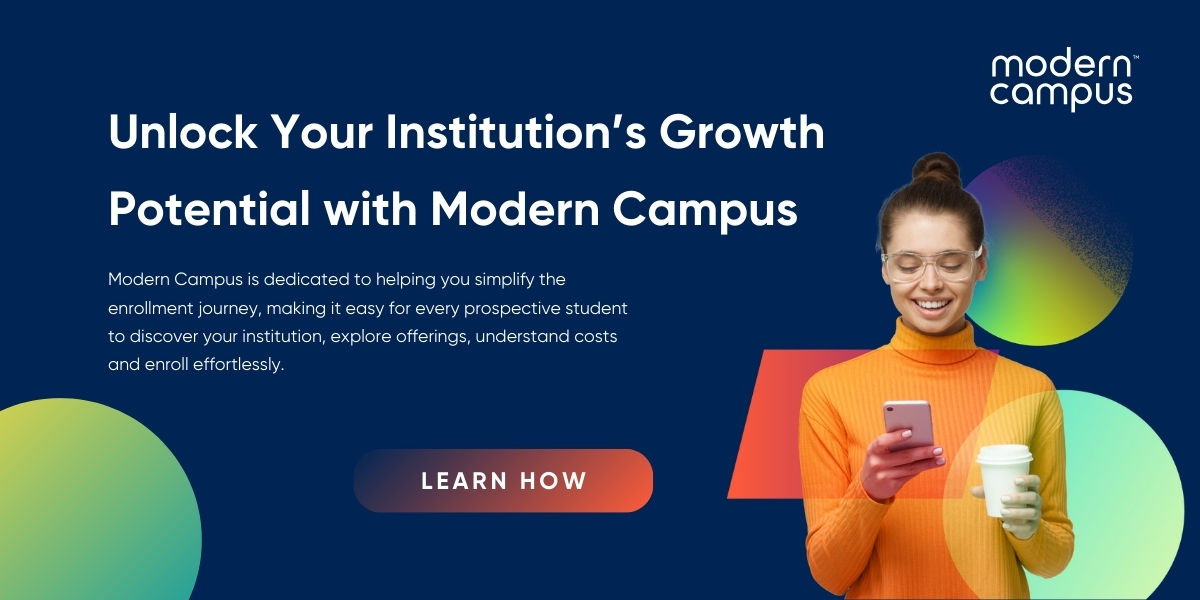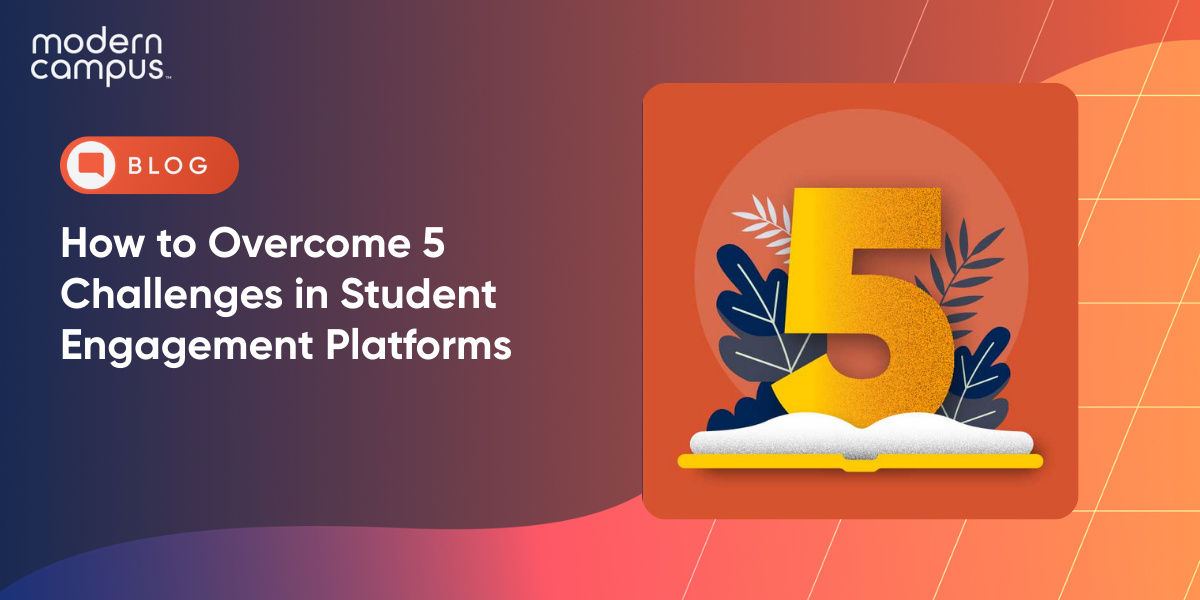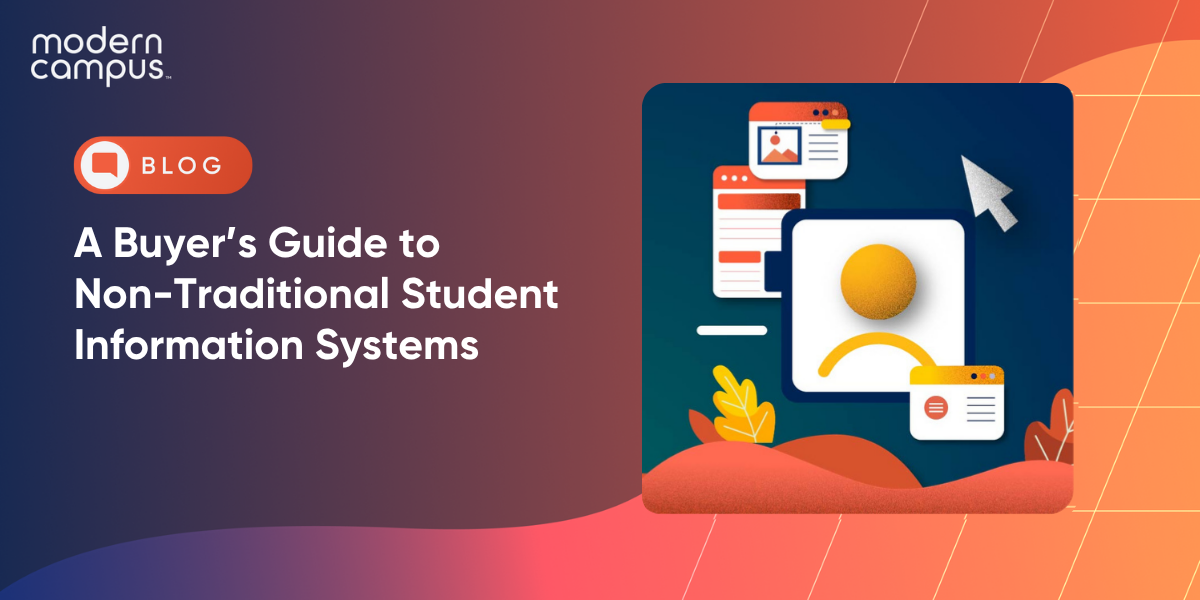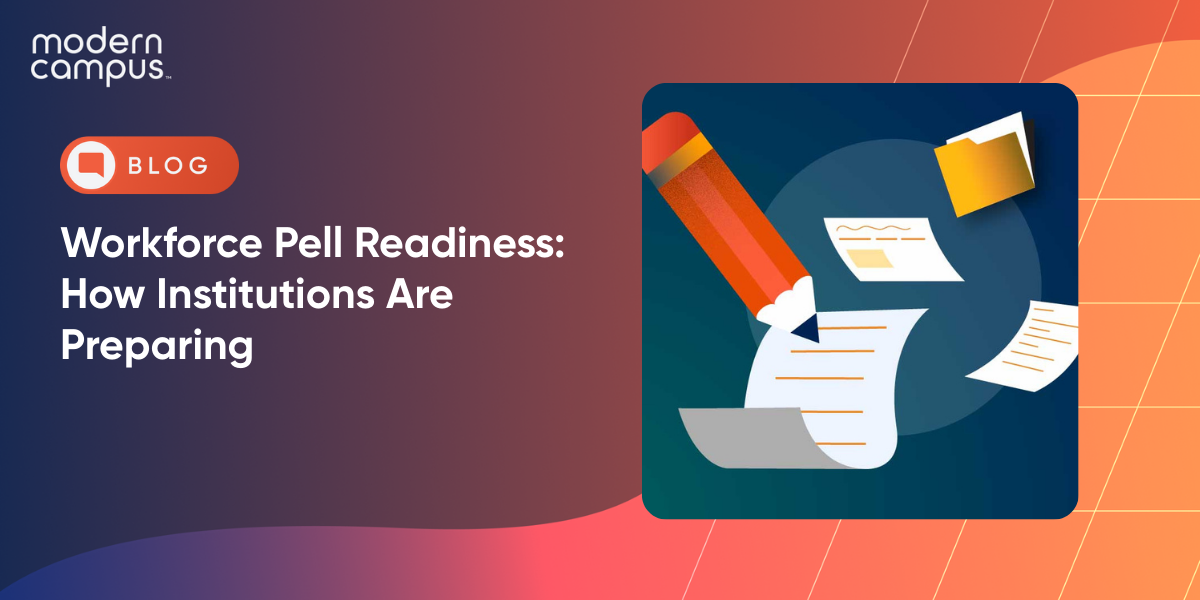Trends in Enrollment Management in Higher Education
Despite 2023 being a generally difficult year for American colleges and universities, the fall of 2024 did see a 5.5 % rise in freshman enrollment from the previous year.
Enrollment in higher education is witnessing a transformative shift as institutions adapt to student expectations and technology-driven decision-making. To remain competitive, colleges and universities are turning to innovative, personalized, and tech-enabled strategies that reimagine recruitment and retention. This blog explores current trends in enrollment management — highlighting how institutions are leveraging data, enhancing personalization, and embracing new technologies to better engage today’s learners.
Leveraging Technology for Student Recruitment and Retention
Technology is reshaping enrollment management as colleges and universities use data analytics to drive informed decision-making. By leveraging big data, institutions can identify patterns, predict enrollment trends, and tailor their strategies accordingly.
Arkansas Tech University used data to demonstrate value across stakeholders, discovering that 94% of first-year students who recorded volunteer hours returned for year two — 22% above the average retention rate for first-year students.
Meanwhile, online enrollment has become the norm across North America. Prospective students now apply from home, engage AI-powered chatbots for real-time answers, and explore campus life virtually. These chatbots personalize communication, enhance student engagement, and automate routine tasks, freeing up human resources.
Personalization and Targeted Marketing
One-size-fits-all approaches to student recruitment are no longer effective. Institutions are recognizing the importance of personalization and targeted marketing to attract and retain students. Understanding students' unique needs allows colleges to tailor their communication and outreach strategies.
More higher ed institutions are boosting engagement and conversions by delivering personalized experiences directly through their websites. Ferris State University, for instance, increased website clickthrough by 2800% using personalization.
Personalized communication, from emails to social media interactions, fosters connection and engagement, attracting prospective students and elevating retention rates by making students feel valued.
Embracing Digital Marketing and Social Media
Digital marketing and social media are now essential in enrollment marketing. Institutions are leveraging platforms like Instagram, Facebook, and X to connect with wider audiences and promote their brand.
Sharing success stories, campus updates, and student achievements through social media storytelling creates compelling narratives that resonate with prospective students and build institutional appeal.
Collaboration Between Admissions and Marketing Teams
Strategically breaking down silos between admissions and marketing teams is gaining prominence. These collaborations ensure a cohesive, integrated student recruitment and retention approach.
Admissions teams provide valuable insights into the needs and expectations of prospective students, while marketing teams craft strategies to effectively communicate the institution's strengths.
This synergy aligns institutions’ messaging across various channels, presenting a unified front to prospective students. Strategic planning is more effective when both teams contribute to a seamless, engaging enrollment experience.
Reflecting on the top ten higher education websites of 2024 many are breaking departmental silos with integrated technologies. For example, Renton Technical College has integrated Career Outlook data within the Pathways section on their website, offering a seamless digital experience.
Inclusive Enrollment Practices
Diversity and inclusion are central to enrollment management. Institutions are creating inclusive environments and removing barriers that may hinder access to higher education.
Implementing targeted outreach programs, scholarship opportunities, and mentorship initiatives encourages underrepresented populations to pursue higher education, enhancing the overall learning experience for all.
Use Recruitment Events and Virtual Tours
While traditional recruitment events remain effective, institutions are increasingly embracing virtual alternatives like interactive maps, immersive virtual tours, and webinars to engage prospective students.
These multimedia-rich experiences contribute to effective student recruitment. For example, Ohio Wesleyan University more than doubled prospect engagement with campus maps and virtual tours.
Hybrid Learning Models
The COVID-19 pandemic accelerated the adoption of hybrid learning models, which enhance accessibility and contribute to student retention.
Institutions now recognize the importance of delivering flexible education, accommodating a broader range of students and contributing to higher satisfaction. Colleges cater to diverse student needs and preferences with a mix of in-person and online courses.
Adapt to External Factors
Enrollment management trends are shaped by external factors that can influence student decisions. The pandemic highlighted how agile, adaptive, and innovative institutions not only survived the crisis but thrived in it.
Economic conditions, societal changes, and global events can impact enrollment trends. Institutions that stay agile and adapt to these external factors are better positioned to navigate uncertainties.
Adapting to external factors involves continuous monitoring, analysis, and adjusting strategies as needed. Institutions that proactively address challenges and seize opportunities stand out as leaders in an evolving higher education landscape.
Want to future-proof your enrollment strategy?
As institutions navigate an ever-changing terrain, making data-driven decisions, effectively engaging students, and creating inclusive and flexible learning environments will be key to attracting and retaining a diverse, motivated student body.
By embracing the right technology, institutions can position themselves as forward-thinking leaders in higher education, ready to meet the challenges and opportunities of the future.
Last updated: March 11, 2024
